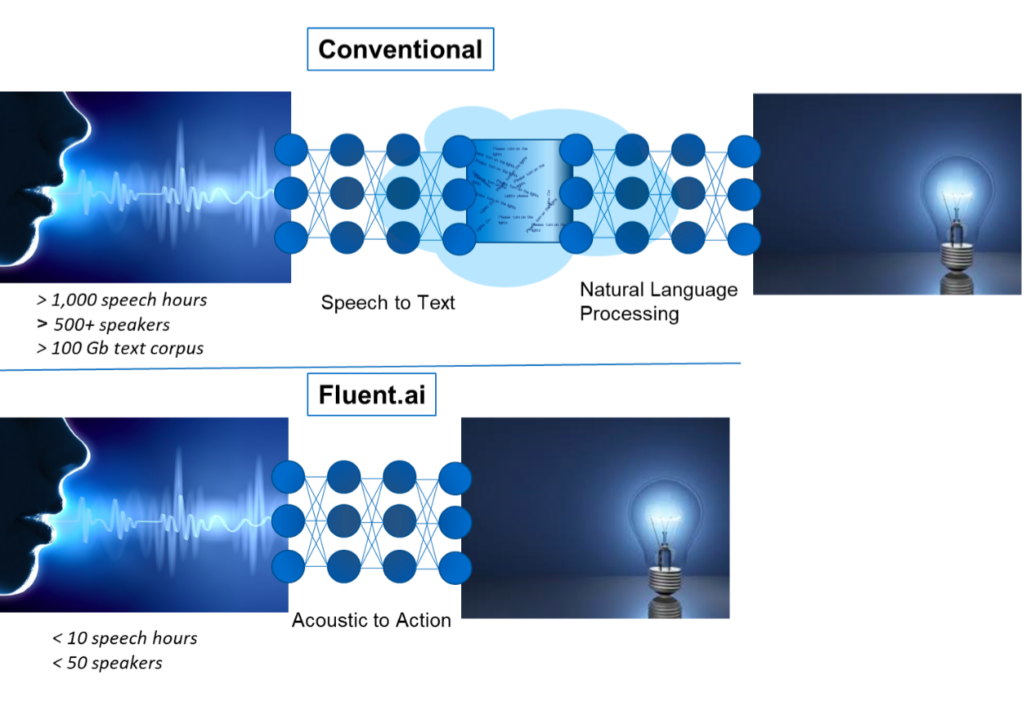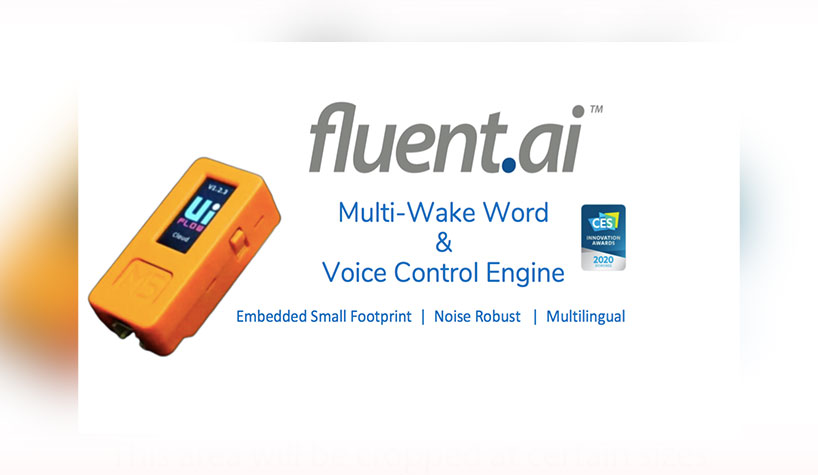MONTREAL, QC, CANADA—Products like Amazon Alexa and Google Home come with their advantages—convenience and ease of use—but they’re also accompanied with customer concerns: most notably, privacy concerns, especially in a hotel guestroom.
Are these devices listening to private conversations? Are they intrusive? As consumers and tech companies navigate these valid questions, hospitality is finding alternatives.
Meet Fluent.ai: a technology company based here, with a range of artificial intelligence (AI) voice interface software products. More specifically, Fluent.ai is an embedded solution that processes commands offline, so data isn’t recorded or stored in the cloud.
“There is discomfort and distrust of Alexa and Google always listening to its users,” said Probal Lala, CEO of Fluent.ai. “Numerous concerning reports surrounding these technologies have come to light in the last few years, such as private conversations being accidentally transcribed and sent to other people, or independent Amazon contractors listening to private audio recordings of Alexa users around the world.”
Fluent.ai’s speech understanding software is multilingual, making it fluent to say the least, but it’s also efficient, understanding speech even in noisy environments. Fluent.ai partners with smart hospitality device manufacturers, providing hotels with a solution to control devices in their rooms (light, TV, etc.) much like its AI counterparts.

So how exactly does this technology work? Lala explained that Amazon Alexa and Google Home use a two-step approach requiring the user’s speech to be transcribed to text in the cloud for the system to understand.
Unlike this, Fluent.ai’s patented approach understands the user’s intent based on the acoustic sounds alone, meaning no speech-to-text transcription or cloud connection.
“This is preferable among guests because it guarantees their privacy; they can rest assured that their voice data will never leave the room,” the CEO said. “The second difference is language support. Fluent.ai can support any language around the world.”
The technology can also support multiple languages in a single model meaning users don’t need to configure language settings, Lala added.
“Our technology enables hotel owners and operators to offer a unique voice-enabled room experience to guests while protecting guest privacy. While Fluent.ai’s privacy-preserving features relieve major headaches for hotel owners, our ability to support any language is also highly beneficial for hotels, most of which welcome guests from all over the world with many different native languages,” he said.
The CEO explained that the technology can be programmed with a custom Wake Word, including offline language understanding and hybrid (offline and online).
“Once woken up, the tech can do a wide variety of actions—from ordering room service to communicating with the front desk, furthering a personalized experience for guests,” Lala said. “Our hybrid solution is interesting for hospitality use cases in that it can optionally connect to the cloud to enable users to voice search over the internet. The choice to activate the online feature is entirely within the hotel operator’s control.”
Whether guests prefer to use Amazon Alexa or Google Home vs. technology like Fluent.ai is their discretion, but regardless, AI technology is here in hospitality.
“The hospitality sector is highly competitive; providing guests with a technologically forward experience is key for hotels to stay ahead of the competition,” Lala said. “Voice recognition is a top area of investment for hotels as it enables a more comfortable and more efficient guest experience.”

